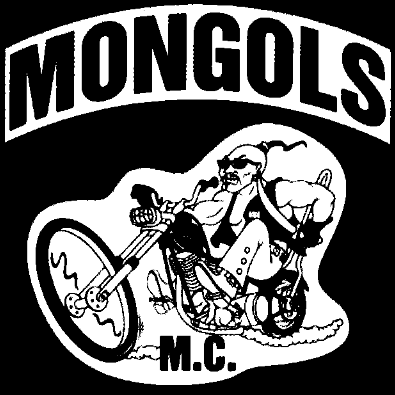Judge blocks forfeiture of trademark rights to motorcycle club logo on First Amendment grounds

Logo from U.S. District Judge David Carter’s decision.
A federal judge in California has ruled that the federal government cannot seize the trademark rights to the logo used by the Mongols motorcycle club.
U.S. District Judge David Carter of the Central District of California ruled Thursday that the forced transfer of trademark rights would violate the First Amendment and the excessive fines clause. Courthouse News Service, the Associated Press and the New York Times have coverage.
The trademarked logo has a drawn image of Genghis Khan-type character with sunglasses and a ponytail riding a motorcycle. The words Mongols M.C. also are on the logo.
In December, jurors found the motorcycle club guilty of racketeering and racketeering conspiracy for murder, attempted murder and drug dealing. In a forfeiture phase of the trial the following month, jurors found that the trademark rights and personal property bearing the trademark were subject to criminal forfeiture under the racketeering conspiracy count.
Carter nonetheless refused to grant a preliminary order of forfeiture of trademark rights. The forced transfer would chill the motorcycle club’s First Amendment rights to display or use the logos without fear of legal retaliation or payment of a licensing fee, Carter said.
He also noted that jurors found a nexus between the logos and the offense only with regard to the charge of racketeering conspiracy, rather than the racketeering count that is based on “heinous acts” that include murder.
“The forfeiture of the rights associated with a symbol that has been in continuous use by an organization since 1969 is unjustified and grossly disproportionate to this offense” of racketeering conspiracy, he said.
Carter noted that the government has been trying to seize the motorcycle club’s trademark rights for more than a decade. A different federal judge rejected an earlier attempted seizure in 2011 because the Mongols gang itself was not named in the racketeering indictment. The case before Carter was filed against the motorcycle club as an entity.
Prosecutors are considering an appeal, according to Thom Mrozek, a spokesman for the U.S. attorney office’s for the Central District of California. Mrozek told the New York Times that prosecutors believe Carter was required by law to issue the forfeiture order.



